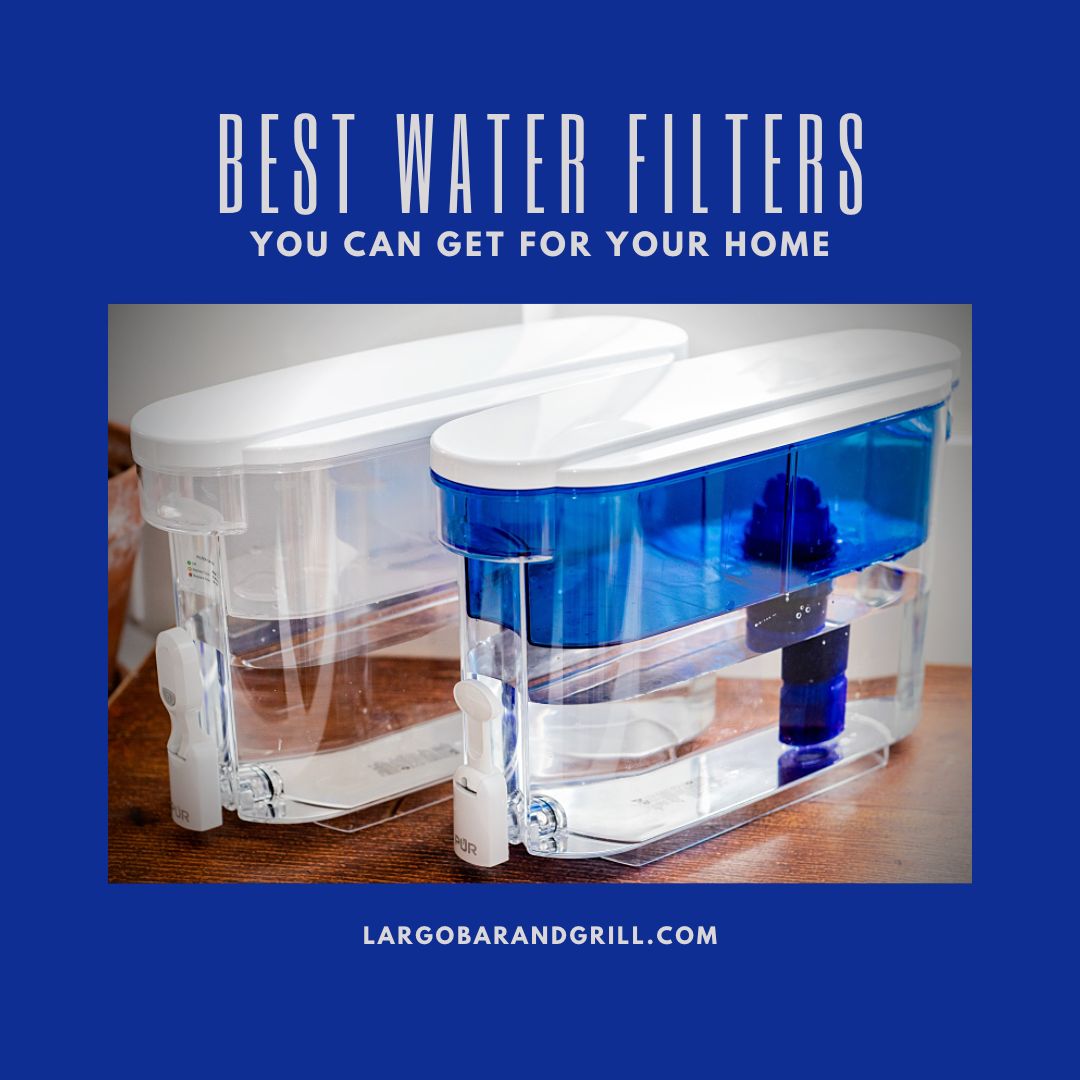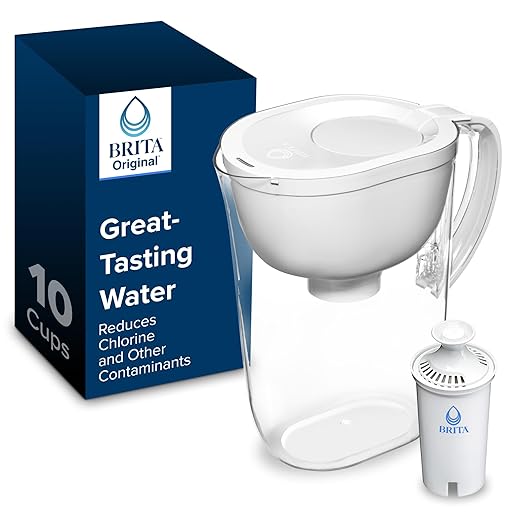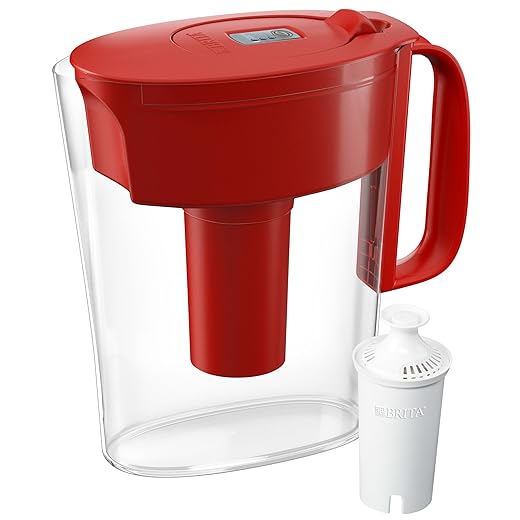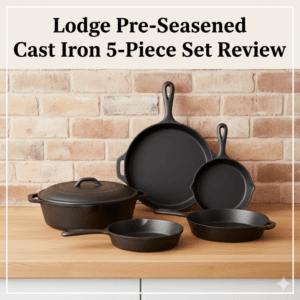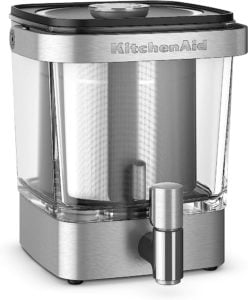Disclaimer: There are affiliate links in this post. At no cost to you, I get commissions for purchases made through links in this post.
We all know that water is essential for life. It’s what we drink, cook with and clean with. That’s why it’s important to make sure that the water we’re consuming is of the best quality.
Not all water filters are created equal, so in this blog post we’re going to outline some of the best water filters you can get for your home.
Whether you’re looking for a filter that will remove contaminants or one that will improve the taste and smell of your water, we’ve got you covered! Keep reading to learn more.
Best Water Filter For Your Home: 10 Reviews And Buyer’s Guide
When it comes to water filters, there are a lot of them to choose from. But which ones are the best? Here is a list of the best water filters that you can get for your home.



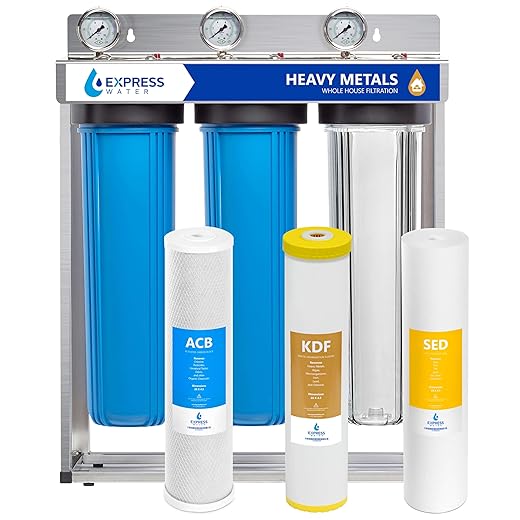


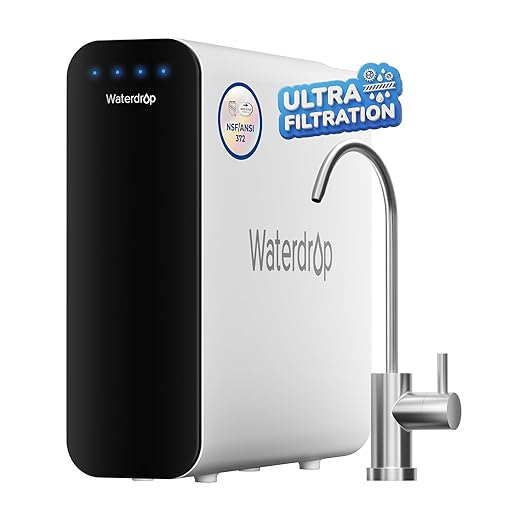
What is a water filter?
A water filter is designed to remove impure substances from the liquid that passes through it. You can find filters in many places, like faucets, fire hydrants, and water tanks. It works by removing sediment (dirt), chemicals (including pesticides), metals (such as lead), germs (bacteria and viruses), or any other harmful impurities.
How does a water filter work?
Water filters work in two different ways: mechanically and chemically. Some use both—some only one.
- Mechanical filter: The mechanical filter sometimes uses activated carbon to remove chemicals from the liquid that passes through it, but instead of using this type of carbon, other mechanical filters use a different mechanism. These other types of mechanical filters use various methods to physically block particles from passing through the filter, such as a screen-like material or a dense fabric.
- Chemical filter: The chemical filter uses activated carbon to remove chemicals from the liquid that passes through it. It works by attracting impure substances with a large surface area. This makes it perfect to remove impure substances, like chemicals and metals.
- Distillation filter: A distillation filter works by vaporizing liquid that passes through it using heat. The steam is then collected, cleaned up (removing any contaminants), and finally condensed into liquid form.
What are the different types of water filters?
There are three common types of water filters: activated carbon, reverse osmosis, and ultraviolet light.
- Activated carbon filter: This type uses activated carbon to remove impure substances from the liquid that passes through it by attracting impure substances with a large surface area. It is very good at removing chemicals and metals (other types of impurities are removed by other methods, like distillation).
- Reverse osmosis filter: This type is similar to activated carbon in that it uses a membrane (a barrier) to block particles from passing through the filter. However, instead of using a porous substance like activated carbon, reverse osmosis filters use a membrane to physically block particles from passing through it. Reverse osmosis filters are very good at removing dissolved impurities, which is why they are sometimes called “dissolved solids filter”.
- Ultraviolet light filter: This type uses ultraviolet light to kill harmful viruses and bacteria. UV light damages the DNA of viruses and bacteria so that they are unable to reproduce or function properly. This type works very well with distillation filters because the steam that they produce is free of bacteria and viruses, but once it condenses, this isn’t the case anymore. To kill off any bacteria or viruses in the condensed liquid, ultraviolet light is used again.
13 Reasons Why You Must Use A Water Filter
Would you like to know why you should buy water filter? Well, if you want your drinking water to be clean and free of different kinds of contaminants, then here are the reasons why every home needs one.
- There is no better way than buying water filter so that you can ensure that what you drink is safe for consumption.
- It is not enough that your water comes from a trusted source; there are instances where the treatment process does not work for all contaminants, so it is also necessary to take another step in purifying the water you drink at home.
- When you buy regular bottled water, it may be expensive than filtered tap water. And since we do not know what’s in the bottle we buy, we might end up drinking contaminated water. This is not an option especially if you have small children at home.
- Children are more vulnerable to different kinds of contaminants that they are exposed to, so when you buy water filter for your tap, then you can also feel safe letting them drink water from the sink.
- You can cook and drink using filtered tap water without worrying that you and your family will be exposed to chlorine and other contaminants that may cause sickness.
- There are different types of water filter available; faucet filters, refrigerator filters, counter top filters, under sink filters, whole house filters and reverse osmosis filters.
- Water filter cartridge or plastic can be changed periodically and this is indicative that water you drink will always be safe for consumption.
- With the many types of water filter available, you can choose one which best suits your needs and lifestyle.
- You need not invest in bottled water again when you already have a filter at home.
- You can help save our environment by not contributing to the growing number of plastics that end up in landfills every day when you drink filtered water from your tap.
- The other important reason why you should buy water filter is because it prevents future health conditions from contaminating water which you drink.
- You can test your home’s water for different contaminants to know what type of filter would be ideal for you and your family.
- Buying a water filter means you’re taking an important step in safeguarding yourself and your loved ones from harmful chemicals that may cause cancer, kidney stones, digestive problems and birth defects.
Factors To Consider When Buying a Water Filter
When it comes to buying a water filter, there are many things to consider. Knowing these factors may help you decide which one is right for your family’s needs.
Remove or Reduce
Your Exposure to Specific Contaminants Essential for good hydration, clean water is something your body needs every day.
Unfortunately, not all sources of drinking water are safe enough to drink without boiling or treating the water first, and in some cases bottled water isn’t much better either.
The best way to ensure that your source of clean drinking water is safe is by using a microbiological water purifier pitcher, filtration system or purification tablets which are designed to remove harmful microorganisms from the supply via physical means rather than chemical ones.
Your Budget
The amount you are willing to spend on a water filter is an important factor in your choice. There are many options ranging from simple, low-priced pitcher filters to more complicated systems for the home involving multiple filters and ultraviolet light purification. Whichever price range you’re looking in, there’s bound to be several suitable options that fit your budget.
Size
How much space do you have available for your water filtration system? If your answer includes “not much”, then consider buying one that doesn’t need permanent installation like faucet-mount or under-sink water filters which attach directly to the pipes beneath your kitchen sink (you can probably install it yourself if needed).
These types of filters are also great if you don’t have a suitable place to store a larger appliance, such as one of the highly effective under-sink units.
Capacity
How much water will your family go through in a day? It’s important to know so that you can choose a pitcher or filtration system large enough for your needs.
If you have an average family of four and use 4 litres of drinking water per person per day, then look for a filter system with a capacity of at least 12 litres (about 3 gallons).
Filter Change Indicator
Some filters either change colour or give some other indicator when they need replacing. This is important because it saves you having to keep track of how many litres of water have gone through each filter, because you know it’s time to change them when the light changes.
Easy Replacement
Some filters are easy to replace once they need replacing (meaning it generally doesn’t involve taking off your sink faucet or other appliances).
If installing an under-sink unit you’ll want one that comes with all the parts and tools necessary for installation and replacement of its filters.
Does it Remove Fluoride?
Fluoride is a mineral found in most drinking water around the world and while natural occurring levels pose no health risks, high concentrations of fluoride above 1.5 milligrams per litre can cause discolouration of teeth and bones. To ensure that your water is fluoride free, look for a filter that specifically mentions fluoride removal as one of its functions.
Does it Remove Arsenic?
Arsenic is also frequently found in drinking water around the world and can cause health problems if levels are high enough (more than 10 micrograms per litre), so you’ll want to make sure your filter removes arsenic too.
You might be surprised at where this contaminant occurs; California, India and Bangladesh all have arsenic-rich soil and groundwater and millions of people living in those areas rely heavily on filtered water because their source contains dangerous quantities of arsenic.
Does it remove Chlorine?
Most filters do not remove chlorine, which is present in many municipal supply sources and has been linked to cancer and other diseases.
If your water contains high levels of chlorine, you must choose a filter that specifically mentions this substance as one of the contaminants it removes.
Does it remove Lead?
If you live in an older home with lead pipes or plumbing fixtures, you might want to look for a filter that will remove lead from your drinking water to ensure your family’s safety. To find out if lead may be an issue where you live, contact your local environmental health department or water supplier and ask about testing procedures.
Healthy Water Filter Pitcher
If you’re looking for something very simple and then consider getting a healthy water filter pitcher that you can use in your fridge. These are usually made of plastic and will hold about 7-10 glasses of water (or more if you get the larger capacity ones).
These types of filters work by surrounding your regular tap water with a barrier through which only healthy , pure water molecules pass. They’re very easy to use, just take one out of the fridge, fill it up with filtered water and let it chill for a few hours before drinking.
Whole House Water Filter
If your family uses a lot of filtered or bottled water throughout the day, consider getting a whole house unit to keep all household taps supplied with filtered (and chlorine-free) drinkable tap water at any time.
We’ve had one like this at our house and the water tastes and smells great and we don’t have to worry about buying bottled water any more.
UV Water Purification System
Instead of using a mechanical filtration system, there are other types that use ultraviolet light (UV) to purify your drinking water.
These work by passing water over a bulb within which UV rays cause reactions in contaminants (like bacteria or viruses), rendering them harmless so they can’t enter your body when you drink it. These systems typically cost around $400-500 but will provide safe, purified drinking water for an entire houseful of people.
Bottleless Faucet Filter
Finally there’s a type of “water filter” made specifically for your kitchen tap that, instead of filtering your water before it reaches your glass or coffee pot, actually purifies the stream as it comes out.
Some bottleless faucet systems will even hold a limited amount of filtered water in the cartridge so you don’t have to wait for a new supply to be filtered each time you want a drink. They’re easy to install and one cartridge should last about six months depending on usage.
Drinking Water Systems
For those health conscious people who are looking for an all-in-one solution with UV filtration as well as some added benefits like alkalizing your water, ionizing it (making smaller particles), having more oxygen in it and some mineralization, there’s nothing like having your own drinking water system in your kitchen.
They’ll usually hold 5-10 gallons of filtered water and you can either get a counter top model or a full-sized floor standing unit with a faucet on it. If you go the whole nine yards with one of these, look for an alkalizing unit, as well as a fluoride remover, which will give you healthier, naturally ionized alkaline water that is safe to drink.
FAQs
Not all filters are equally effective at removing pollutants; some are better than others. Look for a filter that will remove the contaminants you’re most concerned about, and make sure it is easy to use.
Most filters take only a few minutes, but purifiers tend to be slower, because they use various different techniques to make water safe to drink. Some of them actually remove contaminants; others make water safe by adding chemicals.
If you want to use it only for emergencies, you can choose a small, light model that’s easy to carry around with you – perhaps one you can fit in your pocket or attach to the top of a plastic bottle. If you want to use it at home as well, you’ll need a larger model with a greater capacity for filtering the water.
You can usually tell quite easily by looking. If there’s enough water pressure, a filter will spin or a purifier will bubble as the contaminants are removed from the water – you’ll see this happen if you’re using it. If not, your water probably won’t be safe to drink.
A water filter is, approximately speaking, any device which removes chemicals and/or microorganisms from water. The end goal is to improve the quality of the drinking water or supply that you are using by removing impurities and unwanted additives. There is no limit on the size of this device: it may be as simple as boiling your water (which will kill small organisms) or as complicated as a large scale reverse osmosis system.
Simply put, the purpose of many filters is to remove contaminants which may be dangerous to humans. For example, lead can cause damage to the nervous system and kidneys; one glass of lead-contaminated water could be enough to cause serious problems.
Water filters come in two general varieties: those which work by mechanical filtration, and those which work by other methods. Mechanical filtration systems use a solid substance designed to remove impurities from the water as it passes through the filter. Some examples of this are carbon filters, which are made of activated charcoal and use a porous structure to remove things like heavy metals or chlorine. Another example of mechanical filtration would be a simple cloth filter, which removes contaminants by trapping them in its fibers.
Mechanical filtration is often used in conjunction with other tactics. For example, water may be filtered by both cloth and charcoal to remove impurities, or treated with chlorine or ultraviolet light before being filtered.
On the other hand, some filters remove chemicals by adsorption (adsorption is when something attaches itself to a surface). Iodine water purification tablets are an example of this method; the iodine atoms attach themselves to the organic contaminants in the water and convert them to less-harmful iodide ions.
Carbon filters work by a similar process, but instead of converting organic molecules into different ones, they work by absorbing them so that they cannot dissolve in the water.
Conclusion
The best water filter for your home will depend on what you need it to do. If you don’t want any plastic in the water that comes into contact with your body, then a reverse osmosis system is ideal.
You should also consider using an activated carbon and bacteria filters if you have well or municipal tap water because these can help remove unwanted substances like chlorine and lead from the drinking supply.
There are many other types of filters available so be sure to read through our guide before making a final decision about which one would work best for your needs. We hope this article helps! Have you found the perfect water filter yet?
Read more:
- 🔥 Lodge Pre-Seasoned Cast Iron 5-Piece Set Review: The Last Cookware Set You’ll Ever Need
- 18-Inch Portable Charcoal Grill Review: The Affordable Kettle Grill That Surprises Everyone
- Are Nugget ice makers worth it?
- How does the KitchenAid cold brew coffee maker work?
- What cut of steak is the best?
- How to choose the best espresso machine under 100
- What is the best espresso machine under 200?
- How to choose the best espresso maker under 500
- Which coffee beans are best for espresso?
- Do you need special coffee beans for a French press?
Related Posts
🔥 Lodge Pre-Seasoned Cast Iron 5-Piece Set Review: The Last Cookware Set You’ll Ever Need
Disclaimer: There are affiliate links in this post. At no...
Read More18-Inch Portable Charcoal Grill Review: The Affordable Kettle Grill That Surprises Everyone
Disclaimer: There are affiliate links in this post. At no...
Read MoreAre Nugget ice makers worth it?
Disclaimer: There are affiliate links in this post. At no...
Read MoreHow does the KitchenAid cold brew coffee maker work?
Disclaimer: There are affiliate links in this post. At no...
Read MoreWhy Trust Us
You will find what you are looking for at Largo Bar and Grill. From classic to luxury brands, you'll find both. We will help you to select appliances that fit your needs, budget and lifestyle. Whether you want to stop by to learn more — or plan to make a major purchase — we’ll treat you like family and assist you every step of the way. Shop with us today to receive friendly and experienced help along the way.

